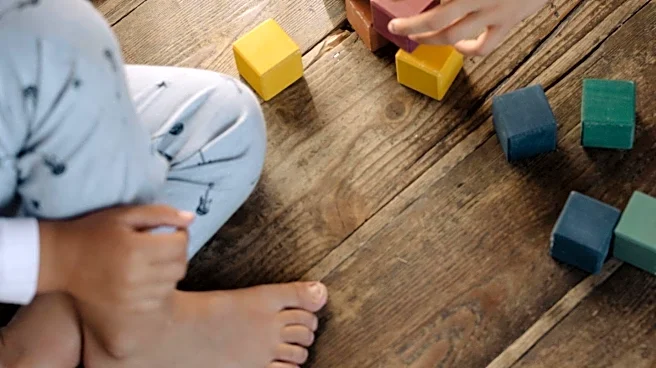What is the story about?
What's Happening?
New research indicates that children as young as 4 years old can independently develop sorting algorithms, challenging previous assumptions about their problem-solving abilities. The study involved 123 children aged 4 to 9, who were tasked with sorting digital images of bunnies into height order. Despite initial limitations, many children discovered efficient algorithmic solutions, such as selection sort and shaker sort, earlier than previously thought. This finding suggests that complex problem-solving skills emerge much earlier in childhood development than traditionally believed.
Why It's Important?
The study challenges longstanding views in developmental psychology, suggesting that children possess advanced reasoning abilities at a younger age. This could lead to a reevaluation of educational approaches, emphasizing the development of problem-solving skills in early childhood. Understanding how children naturally employ algorithms may inform teaching methods and curriculum design, fostering cognitive development and critical thinking from a young age.
Beyond the Headlines
The research contributes to a broader understanding of cognitive development, highlighting the innate capabilities of children to engage in complex problem-solving. This may influence future studies on childhood learning and the integration of algorithmic thinking into educational practices.















